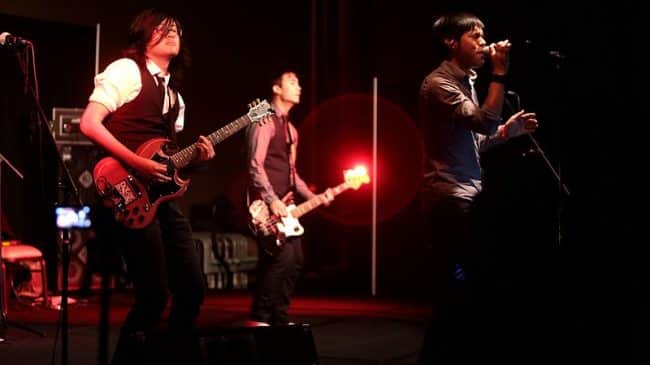This case is about whether an Asian-American rock band called The Slants can trademark and own their own name. The Slants are a group of artists who have formed an identity “to take on these stereotypes that people have about us, like the slanted eyes, and own them.”
Some agree with The Slants’ approach and some disagree, as is normal in a robust artistic marketplace. What’s not normal is that the government has chosen sides in this debate, punishing The Slants for their choice of name by denying them federal trademark registration. This punishment is the result of the “disparagement clause” in the federal trademark statute, the Lanham Act, which bars the registration of “matter which may disparage . . . persons, living or dead, institutions, beliefs, or national symbols, or bring them into contempt or disrepute.” As artists know, the denial of trademark registration comes with severe negative consequences, since the “benefits of registration are substantial.” Faced with this potential punishment, many artists, advocacy groups, and businesses will simply choose a different name. The government’s rule thus discourages some names and encourages others.
This Court should make the jobs of the employees at the U.S. Patent and Trade Office (PTO) much easier and put an end to the disparagement clause. Trying to stamp out “disparaging” speech is both misguided and unconstitutional. No public official can be trusted to neutrally identify speech that “disparages.” Moreover, disparaging speech has been central to political debate, cultural discourse, and personal identity for as long as this country has existed.
